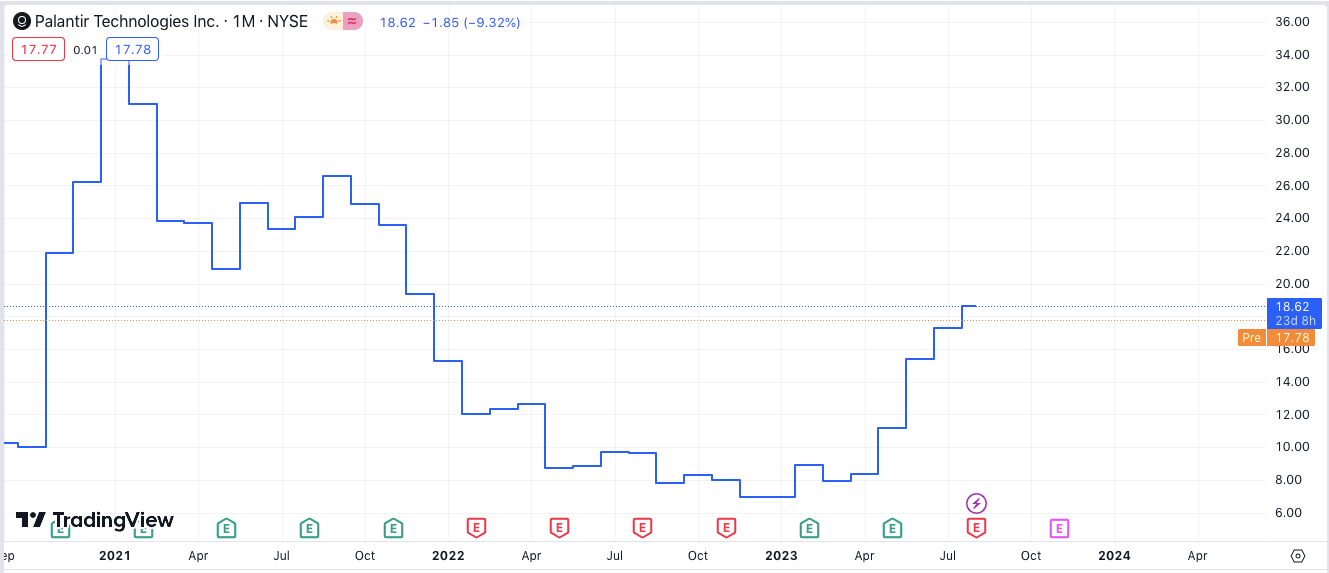A New Oppenheimer Moment
In the 20th century, the geopolitical power was shaped by nuclear arms; in the 21st, it's being redefined by AI weaponry.
In a world far removed from the days of J. Robert Oppenheimer and his atomic age, the US and China are on the brink of a profound transformation. This isn't a moment shaped by the fear of nuclear annihilation; it's one defined by something more elusive and equally powerful: artificial intelligence.
Imagine the battlegrounds of Ukraine. The warfare is no longer dictated by conventional arms; instead, it's becoming a proving ground for weapons driven by algorithms and data. The protagonists in this new arms race aren't simply governments. Companies like Palantir, Google, Microsoft, Meta could be joining the ranks, their innovations pointing the way forward.
Palantir. Source: Tradingview.
Consider Palantir, a company whose very name conjures images of foresight. What role do they play in this complex dance?
This is a narrative that calls us to examine our history, a reflection that conjures images of GE and IBM, those monoliths of industry and defense during the Cold War. As tech giants begin to resonate with those historical echoes, we must ask ourselves what this means for our future.
IBM, Cold War Data Prices. Source: Global Financial Data.
This is not merely a technological evolution; it's a societal one, intertwining industry, defense, privacy and ethics. The lines that once defined fields and roles are blurring, and the implications reach far beyond the battlefield. As we stand at this new Oppenheimer moment, the world is poised to leap into an age where technology not only changes the way we fight but also the way we think, strategize, and interact on the global stage.
Thanks for reading,
Guillermo Valencia A
Brazil, 8th August 2023





